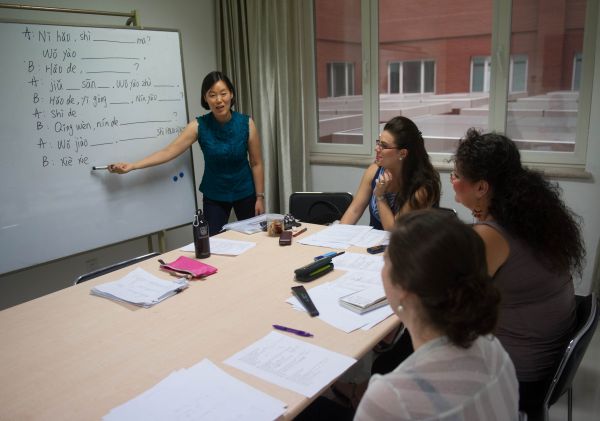Every language has its grammar. What we are talking about here is “natural grammar”, that is to say, every language must have some conventional rules of language, not the “theory and method” summarized by describing natural grammar. A language can not summarize systematic theoretical grammar, but there must be natural grammar, just like when we don’t understand the physical rules, they have existed since ancient times. The so-called grammar, we do not talk about the deep, the simplest is the combination rules of language elements, that is, the order in which language elements are arranged.
For example, the syntax of Chinese Putonghua is a typical SVO structure, that is, the subject predicate object syntactic sequence. For example, to express “I am the agent, and to impose the action of” eating “on the patient, we need to say” I eat “. Everyone has to follow this way of combination when speaking. The change of word order means that the semantics also changes. To convey the above psychological reality, we need to It can’t be said that “I eat rice” (this sentence does exist, it’s an translocation sentence, and the correct record should be “I eat rice”. Due to the change of word order, there are subtle differences in meaning, which is to emphasize that “I” eat this bowl of rice), “I eat rice”, “eat me” (similarly, the correct record method should be “eat me”.
There is a phonetic pause due to the change of word order The change of righteousness is in response to “what are you doing”, which means “I’m eating”). (the form of SOV does exist in Putonghua, but generally speaking, Putonghua is SVO language, which is not contradictory at all. Please take a picture of my research results and papers directly. In the comment area, I can see a sentence or two that I don’t know about the so-called direct deletion of comments. Elder brother, would you at least understand the basic structure of Chinese combination rules? You are the one who only has naive perceptual experience and no rational understanding of his mother tongue) what does it mean that there is no grammar? It means you have a set of rules, I have a set of rules, everyone can say what they want. As for the psychological reality of “beautiful flowers”, I said “beautiful flowers”, he said “beautiful flowers”, and you said “the sand pouring method is extremely skillful” (random knocking).
Although our psychological reality is the same, but the expression methods are very different. I can’t understand yours and you can’t understand mine. How to communicate? It should be said that as long as a language is responsible for information transmission, there must be grammar. As long as it is language, its basic function is information transmission, so we can draw the conclusion that “as long as it is language, there is grammar”. The objective existence of grammatical rules requires users to abide by them consciously.
Chinese Grammar Rules
We will discuss about the basics of Chinese grammar and how you put sentences together. Some people say Chinese doesn’t have grammar, but in fact it does and it’s all about how you put different parts of the sentence together. This is an example sentence ni xihuan mao means You like cats. Other sentence ni xihuan heise de mao means You like black cats. You can see that in the sentence the order of the words is exactly the same as it would be in English. The word for cats here actually means cat as well, so you’ll notice that there isn’t any singular or plural in Chinese.
We can just say the character for cat so ni xihuan mao means you like cats exactly the same order as in English. This is a basic sentence so if we expand this a little bit and then we say ni xihuan heise de mao so in this sentence ni is you, xihuan is like, heise means black color de is a character which connects two parts. Shows the relationship between two parts of a sentence and mao means cats. So you can see essentially it’s still the same word order as English the black comes before the cats. After the like so the order is essentially the same.
Let’s move on now here’s another simple sentence wo changge means i sing. This is how you say I sing in Chinese. If we modify the sentence and we can say wo meitian changge means I everyday sing. You can see that in Chinese if you want to talk about the time then you put that before the verb. So if you wanted to talk about a location then that comes before the verb. Wo meitian zai jiali means I every day at home. Wo changge meitian zai jiali means I sing every day at home.
If you want to talk about who you’re doing it with that also comes before this verb. Now you’re getting an idea of the different locations, where the different parts of the sentence are in the sentence in Chinese. In Chinese there are no tenses like past tense or future tense or present tense in the same way that there are in English. This is similar to English we put the time after the verb here and then we have something which is happening in the future. If you enjoyed this grammar rules don’t forget to visit our link for more details.

